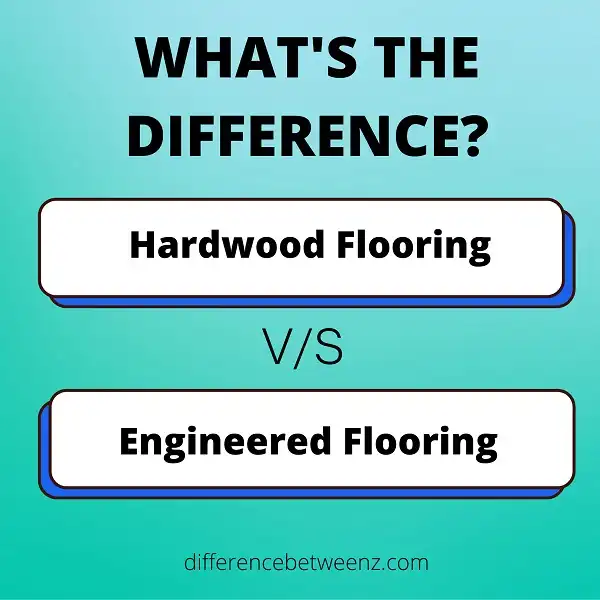If you’re in the market for a new floor, you may be wondering if hardwood or engineered flooring is the right choice for you. Both have their pros and cons, but which one is right for your home? Here’s a breakdown of the difference between hardwood and engineered flooring to help you decide.
What is Hardwood Flooring?
Engineered hardwood flooring is a type of wood flooring that is made from multiple layers of wood veneers and a plywood backing. It is typically more stable than solid hardwood flooring, making it a good choice for rooms with high humidity levels or for homes that are built on concrete slabs. Engineered hardwood flooring is available in a wide variety of wood species, including oak, maple, and cherry. It can also be stained and finished to match the décor of any room. While engineered hardwood floors are less expensive than solid hardwood floors, they still require regular care and maintenance to keep them looking their best.
What is Engineered Flooring?
Engineered flooring is a type of flooring that is made from multiple layers of material that are pressed and glued together. The top layer is a thin sheet of hardwood, while the lower layers are typically made from plywood or another type of wood product. Engineered flooring is designed to be more stable than solid hardwood, making it less likely to warp or cup over time. Engineered flooring can be installed over a variety of subfloors, including concrete, plywood, and even existing ceramic tile. Engineered flooring is available in a wide range of colors and styles, making it a versatile option for any home.
Difference between Hardwood and Engineered Flooring
Hardwood and engineered wood floors are both beautiful and durable, but there are some important differences to consider before making a purchase. Hardwood floors are made from solid pieces of wood, while engineered wood floors consist of layers of wood veneer over a plywood or particleboard substrate. Hardwood floors can be sanded and refinished multiple times, but engineered wood floors can only be sanded a few times before the veneer layer is sanded through.
Hardwood floors are also more susceptible to expansion and contraction due to changes in humidity, while engineered wood floors are more stable. When choosing between hardwood and engineered wood flooring, it is important to consider the intended use of the space, the desired level of maintenance, and the relative humidity in the home.
Conclusion
Engineered flooring is a great option if you are looking for a hardwood look, but don’t want to worry about the extra maintenance that comes with hardwood floors.


